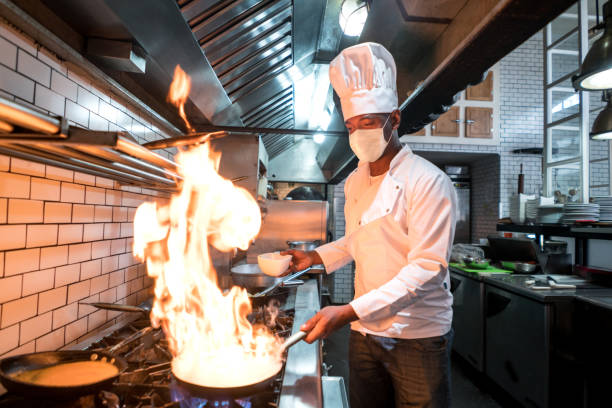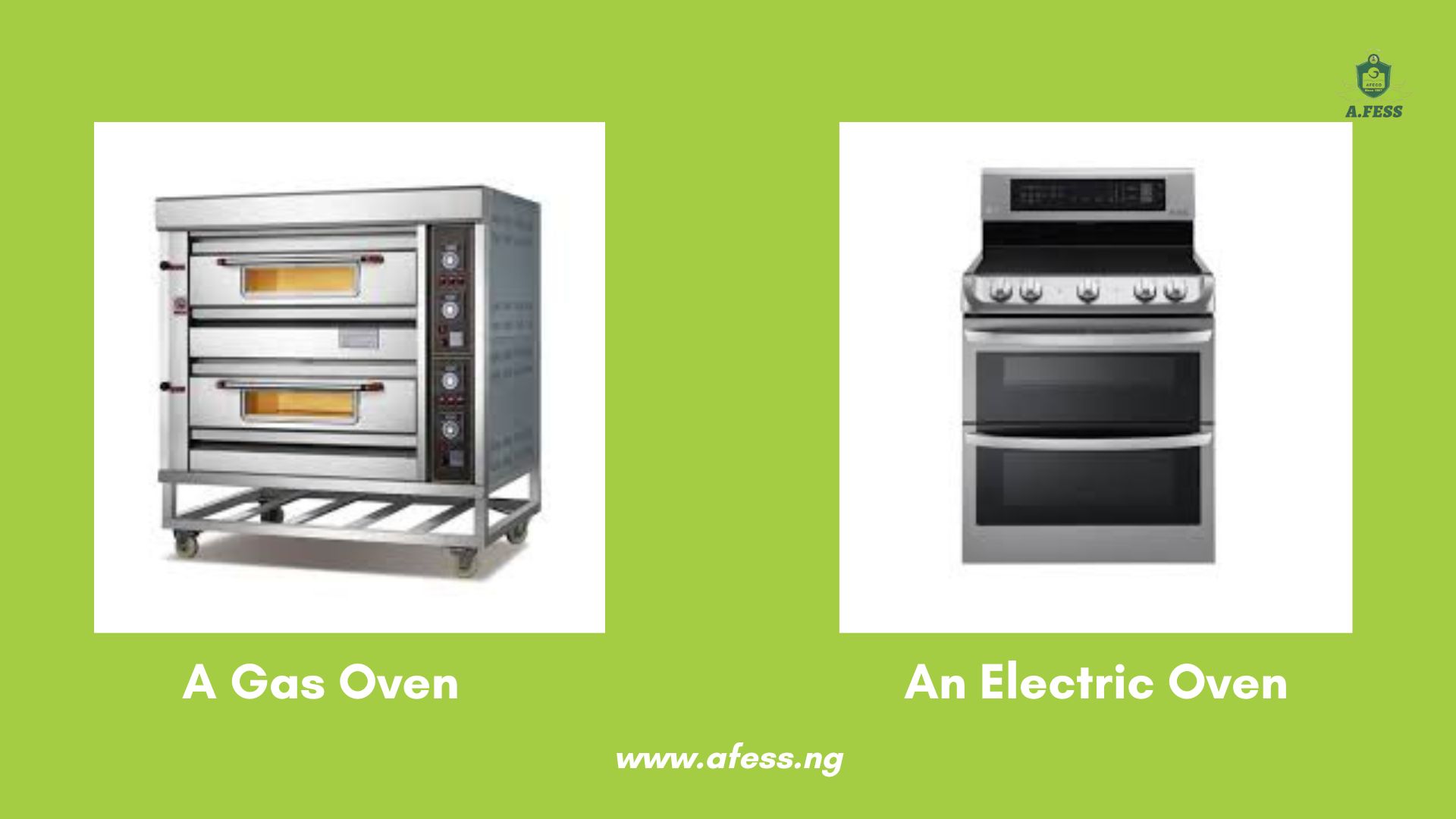6 Essential Differences Between Gas Ovens and Electric Ovens

Gas ovens and electric ovens are the 2 primary contenders in the market when it comes to equipping your kitchen, either for commercial purposes or personal purposes. While they both carry out the same function of baking, roasting, and broiling your food item, they operate differently, which leads to distinct performance.
The cost and the resources they consume differ, the same way their result differs. A good understanding of these differences is crucial when selecting the oven that best suits your cooking style and needs.
In this article, I will be sharing with you the key differences between gas ovens and electric ovens. I will also be recommending where to get these ovens at affordable prices without compromising on quality.
But before I go into this, let’s see the definition of both ovens.
What is a gas oven?
A gas oven is a cooking appliance that uses natural gas or liquefied petroleum gas (LPG) as its fuel source to generate heat for baking, roasting, and cooking. Unlike electric ovens that rely on electrical heating elements, gas ovens use a gas burner located typically at the bottom of the oven chamber.
What is an Electric Oven?
An electric oven is a cooking appliance that uses electricity to generate heat for baking, roasting, and cooking food. Unlike gas ovens, which rely on a flame, electric ovens use metal heating elements—usually located at the top and bottom of the oven chamber to distribute heat evenly.

6 Key Differences Between Gas Ovens and Electric Ovens
1. Heat Generation:
Gas Ovens utilize a live flame, typically fueled by natural gas or propane. When you turn on the oven, gas flows to a burner where it’s ignited, producing a visible flame.
Adjusting the temperature involves controlling the size of this flame. This direct heat source is a hallmark of gas ovens.
2. Heating Speed and Responsiveness:
The direct flame of a gas oven and the gradual heating of electric elements lead to noticeable differences in heating speed and responsiveness.
Generally, gas ovens heat up faster than electric ovens. The direct flame quickly raises the temperature of the oven cavity.
Similarly, when you adjust the temperature, the change is relatively immediate as the size of the flame is altered. This responsiveness is often favored by those who need to preheat quickly or make rapid temperature adjustments during cooking.
Electric ovens typically take longer to preheat as the elements need time to reach the desired temperature. While they maintain a consistent temperature once heated, the response to temperature adjustments can be slower as the elements gradually heat up or cool down.
However, as noted by experts, the heat in electric ovens tends to be more consistent once the target temperature is reached.
3. Heat Distribution and Moisture Levels
A similar characteristic of a gas oven and an electric oven is that they both generate heat, but the distribution of this heat varies.
Gas ovens tend to produce a more humid cooking environment as a byproduct of the combustion of gas. The heat distribution can sometimes be less even, with hotter areas typically near the top and cooler areas at the bottom, especially in models without a convection fan.
This moist heat is often preferred for baking certain items like bread and pies, as it can help prevent them from drying out too quickly, as highlighted by a culinary blog discussing baking techniques.
Electric ovens generally provide a drier and more consistent heat throughout the cavity, particularly in models equipped with a convection fan that circulates the hot air. The even heat distribution makes them well-suited for baking cakes, cookies, and roasting meats where consistent browning is desired.
4. Cost of Operation:
The long-term cost of running a gas oven or an electric oven depends heavily on local prices.
In many regions, natural gas is often less expensive per unit of energy compared to electricity. This can translate to lower operating costs for gas ovens, especially for those who do a significant amount of cooking. However, this is not a universal rule and depends on your location’s utility rates.
While electric ovens may be slightly less expensive to purchase initially, the cost of electricity can be higher than gas in some areas. This can lead to higher long-term operating costs, especially for ovens without energy-efficient features.
5. Installation and Infrastructure
The setup requirements for gas ovens and electric ovens differ significantly, as installing a gas oven requires a gas line connection.
If your kitchen doesn’t already have one, you’ll need to hire a qualified professional to install it, which can add to the initial cost of purchase.
Proper ventilation is also crucial for gas ovens to safely vent combustion byproducts.
Electric ovens typically require a high-voltage electrical outlet (usually 220V or 240V). Most modern homes are equipped with these outlets. Installation is generally simpler than gas ovens, often just involving plugging the appliance in.
In the event that your restaurant, bakery, etc, does not have a fitting outlet for an electric oven, you should hire an electrician to fix it to avoid damaging the outlets and, in turn, damaging your electric oven.
6. Safety Considerations:
The primary safety concerns with gas ovens revolve around gas leaks and the presence of an open flame. It’s crucial to have proper ventilation and a working carbon monoxide detector.
Regular maintenance to check for leaks is also essential, as it’s important to be aware of the potential hazards associated with gas appliances.
Electric ovens pose risks related to electrical shock and burns from hot surfaces. It’s important to ensure the oven is properly grounded and to avoid contact with heating elements. Overloading the oven or using improper cookware can also create safety hazards.
Like I mentioned earlier in this article, a good place to get gas ovens and electric ovens is at Afess Industrial Kitchen Equipment, located at
Or Call any of our sales representatives on these lines to make your order – 0916 983 8312, 0916 983 8309, 0813 750 0323
Conclusion
As a food business owner, your oven choice directly impacts product consistency and scalability. Gas ovens deliver quick heat adjustments and a humid environment, beneficial for certain food products and faster batch processing.
Electric ovens ensure reliable, even baking, critical for maintaining uniform quality across large volumes, essential for meeting customer demand.
Do you want to ensure consistent quality and scale your production effectively? Explore our range of commercial ovens in our Lekki showroom or online: www.afess.ng
More articles for you
5 Reasons You Should Own a Commercial Slush Machine
Beginner’s Guide To Using A Chafing Dish
Kitchen Equipment Every Restaurant Needs
Buying vs. Leasing Kitchen Equipment: Which is Better for Nigerian Restaurants?
Restaurant Equipment in Nigeria: Prices, Suppliers, and Buying Guide
One thought on “6 Essential Differences Between Gas Ovens and Electric Ovens”